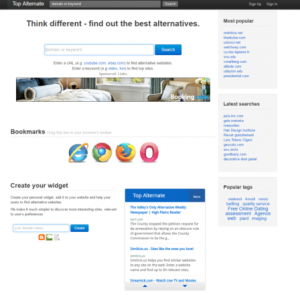— September 28, 2018
The start of a project is no different from the calm before the storm. The decisions you make during the initial stage of a project determines how things will proceed along the way. This is what makes project initiation an important and extremely intimidating stage in the entire project management lifecycle.
From setting estimating, gathering requirement, assigning resources, and scheduling kick-off meetings for briefing in your team, every task involved in this stage helps to shape how your project develops. So, in order to set a tone for success, you’ll have all the tools and information you need to start your project in the right way. That being said, here are a few insights and tips that might help you ease the future path for your upcoming projects.
Common Challenges Teams Face During Project Initiation
Picking up a project half-way through
Starting a new project is difficult but things can get even more complicated if you’re picking a project half-way through. As a project manager, you are required to gain clarity on everything that has happened previously in the project and keep things moving forward at the same pace. In most cases, project managers often find it difficult to keep everyone (team and client) aligned with the process and fail to give the project a good start.
Geographically dispersed teams
In today’s evolving industry, companies are operating with virtual teams that are spread across the globe. Working with a virtual team is exciting but it comes along with its own set of challenges including lack of communication and poor information sharing. Since the project initiation phase is inherently collaborative in nature, it is important that everyone is on the same page and have access to the same information, irrespective of their actual location.
Constant delay in getting a start date
It’s often the case at the beginning of a project that a project manager evaluates every aspect of the project, documents all the necessary requirements, defines a basic project plan … and then, something happens to bring everything back to square one. Every time a project manager thinks that he/she is done the planning and is all set to get started, there will be changes or improvements that will force to start again. As a result, the momentum is lost and the start of the project is constantly delayed.
Not using project management software
Every business – large or small – has plenty of projects, plans, and people to deal with every day. And, if it’s not using a project management software, chances are that it might end up wasting a lot of time and effort on things that can easily be automated. Using dedicated software helps to keep all your projects, tasks, resources and project information under one roof. In its absence, getting projects delivered would be a great challenge and everyone will work twice as hard to get half of what they have.
Tips To Remember When Starting A New Project
Take time to know your project
Doing a little research at your end before starting a new project always pays off. It provides you the opportunity to look out for more information that will help you approach the project with a clarity and confidence. Furthermore, it offers you the security of knowing what needs to be done and where you need to devote your maximum time and efforts in order to complete the project successfully.
Create a basic plan
If you don’t know where your project is going, then you will never get where you want. A good project plan is like a roadmap to success. It highlights all the key steps in the workflow process, with milestones tied to specific due dates. Now, a project plan doesn’t need to be too rigid or complicated. You can start with a basic plan that helps your team members to understand what’s about to happen and remain flexible for any surprise that comes along the way.
Gather the right people in the room
The people you get onboard play a crucial role in deciding the fate of the project. That’s why it is considered imperative that you recruit the best you can afford during the project initiation phase. Remember, with the right people in the room you will never regret the performance or product you receive at the end of the project. So don’t think about settling for mediocre performers, recruit people with the skills and experience you need for your project. Find people with whom you can share the rewards of your project’s success.
Make expectations clear
Finding the right team for your project is not enough. If you want a team to deliver spectacular results, you will have to tell them what they are accountable for. Remember, lack of clarity can send even the best people into chaos. Make sure that everyone on your team is clear about their roles and responsibilities. Schedule specific discussions with team members and tell them about the expected deliverables. Keep everyone on the same page throughout the project – it will be easy to overcome every possible obstacle and achieve the desired results.
Set-up rigid communication protocol
With so many methods and tools of communication available in the market, there is no reason that an important aspect of the project is left unaddressed. A great project manager knows how important it is to maintain an effective communication between teams right from the start of the project. Setting up some strict communication guidelines and using a powerful team collaboration tool like ProofHub, Skype, Hipchat, or Google Hangout is a great way to ensure that you get messages across to other people in the team without any hassle.
The initial stage of a project can be lengthy, but each step you take will put you closer to the successful completion of your project. With the above insights and tips, you can create your very own project initiation checklist, covering all the key elements you need to put in place to start off your project right.
Business & Finance Articles on Business 2 Community
(55)




